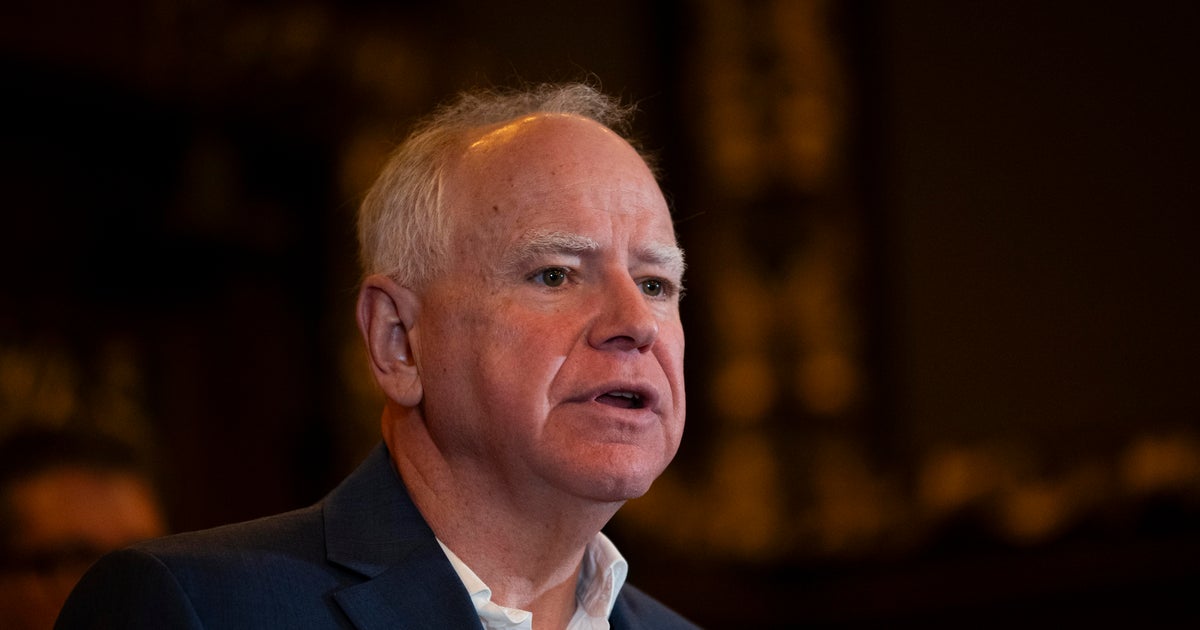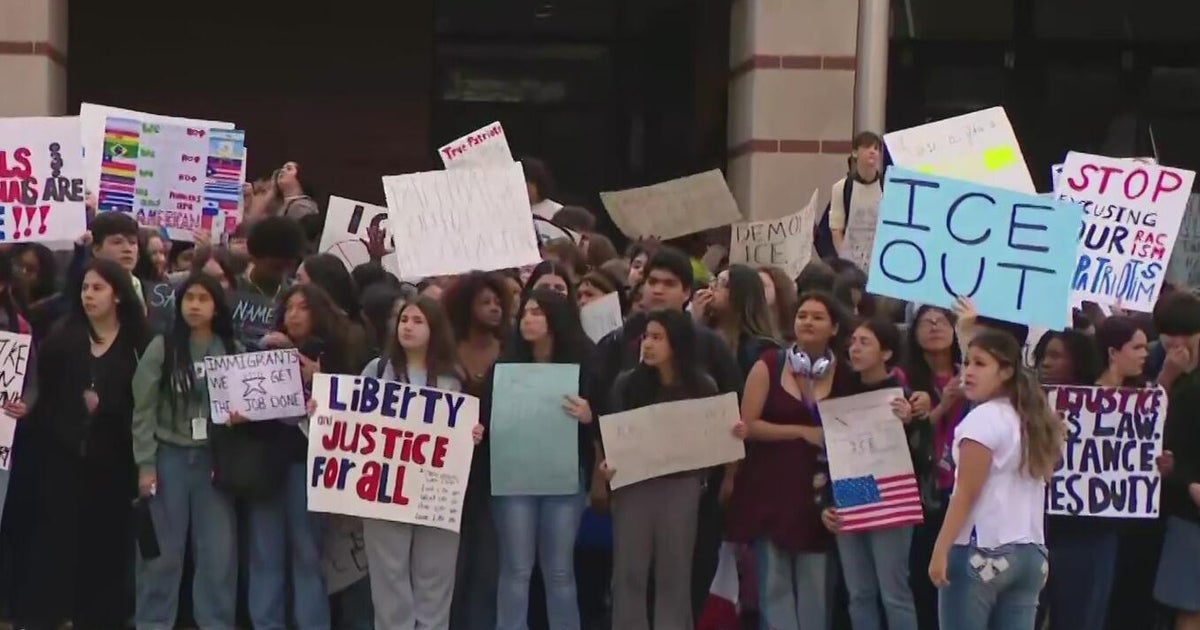Texas Among 21 States Reporting Increased COVID-19 Cases As Experts Warn Of A Fall Surge
NORTH TEXAS (CBSDFW.COM/CNN) - Texas and almost half the United States is reporting increased numbers of new COVID-19 cases as health experts warn of a potential coronavirus surge in the fall and winter.
As of Sunday, the number of new coronavirus cases has increased by at least 10% or more compared to the week before in 21 states, most of them in the West, according to analysis of data from Johns Hopkins University.
Cases are rising in Texas, Alabama, Alaska, Colorado, Idaho, Maine, Michigan, Minnesota, Montana, Nevada, New Jersey, New Mexico, North Carolina, North Dakota, Oregon, South Carolina, South Dakota, Utah, Washington state, Wisconsin and Wyoming.
Eighteen states were holding steady. Only 11 -- Arizona, Louisiana, Tennessee, Georgia, Florida, Virginia, Maryland, Connecticut, Rhode Island, Vermont and New Hampshire -- saw decreases of new cases of more than 10% compared to the week prior.
The US could see an explosion of COVID-19 cases in the fall and winter as people exercise less caution and spend more time indoors, where there is a greater likelihood of transmission, according to Dr. Chris Murray, director of the University of Washington's Institute for Health Metrics and Evaluation (IHME).
Murray says the IHME model shows a "huge surge" expected to take off in October "and accelerate in November and December." The IHME model indicates that the country is currently seeing about 765 daily deaths from COVID-19, but that number could jump to 3,000 daily deaths by late December.
New York state on Saturday reported more than 1,000 new cases for the first time since early June, prompting Gov. Andrew Cuomo to warn residents about growing complacent going forward.
"It's vital that New Yorkers continue to practice the basic behaviors that drive our ability to fight COVID-19 as we move into the fall and flu season," Cuomo said in a statement. "Wearing masks, socially distancing and washing hands make a critical difference, as does the deliberate enforcement of state guidance by local governments."
Wisconsin reported 2,817 new cases on Saturday, the state's highest single-day increase in cases. The previous record was set September 18 with 2,533 cases, according to the Wisconsin Department of Health Services. On Sunday, 2,217 new cases were reported for a total of 115,862 cases statewide, according to the department.
Last week, Wisconsin Gov. Tony Evers issued an executive order mandating face coverings in an effort to keep infections down. In a news release, his office attributed rising cases primarily to infections among 18- to 24-year-olds and said the state was "facing a new and dangerous phase" of the pandemic.
"We need your help to stop the spread of this virus, and we all have to do this together," Evers said.
Centers for Disease Control and Prevention director Dr. Robert Redfield previously warned the fall and winter could be "one of the most difficult times that we experienced in American public health." And with daily cases averaging 40,000 nationwide, the new season could be a challenge, infectious disease expert Dr. Anthony Fauci told Dr. Howard Bauchner, editor-in-chief of the Journal of the American Medical Association on Friday.
"You're going to have to do a lot of things indoors out of necessity of the temperature, and I'm afraid, with that being the case, if we don't carefully follow the guidelines ... the masking, the distance, the crowds, that we may see another surge," he said.
The US surpassed 7 million infections of COVID-19 on Friday. More than 204,000 people have died.
Normal Could Be A Long Way Off -- Even With A Vaccine
Fauci says COVID-19 vaccinations could "very likely" start in November or December. Thirty-eight vaccines are in human trials around the world, including six in the US.
But it could still be a while until the US is back to normal, Fauci said.
"By the time you get enough people vaccinated ... so that you can start thinking about maybe getting a little bit more towards normality, that very likely, as I and others have said, will be maybe the third quarter or so of 2021," he told Bauchner. "Maybe even into the fourth quarter."
Until then, Fauci and other leading experts have urged Americans to continue heeding safety guidelines and wearing masks, keeping a distance, avoid crowded places and washing their hands. The measures could be life-saving.
Meantime, experts are working to combat skepticism about an eventual vaccine and its approval by the US Food and Drug Administration. The race for a vaccine and its importance has resulted in a significantly accelerated development process.
One recent poll found a majority of Americans believe political pressure from the Trump administration could cause the FDA to rush the approval of a vaccine before Election Day on November 3.
Those concerns were exacerbated this week when President Donald Trump claimed the White House could override the FDA if the agency released tougher standards for authorization of a vaccine. The FDA declined to comment on the President's claim.
But Fauci sought to dispel worries of political interference, which he called the "big elephant in the room."
"If you look at the standard process of how these things work, I think you could feel comfortable that it is really unlikely that that's going to happen," he told Bauchner, adding he trusts the scientists and commissioner of the FDA.
"You got to reassure people who have concern and skepticism there that these are professionals at the FDA that have been doing this their entire career," he said. "They really know what they're doing."
(© Copyright 2020 CBS Broadcasting Inc. All Rights Reserved. The CNN Wire™ & © 2020 Cable News Network, Inc., a Time Warner Company contributed to this report.)







